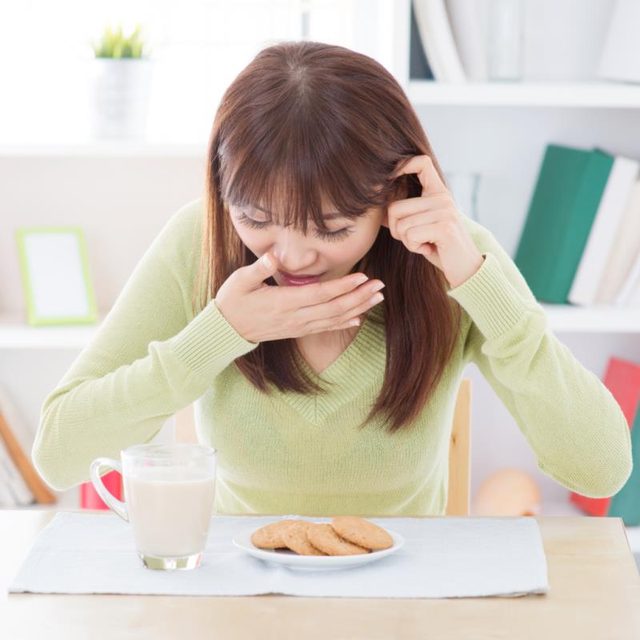Allergies are common all around the world. They result from an overreaction of the immune system to certain external stimuli such as pollen and mold. Common symptoms of allergies include running nose, blocked nose, coughing and sneezing. But what about nausea? Is it one of the symptoms of allergies too?
Can Allergies Cause Nausea?
Yes, allergies can cause nausea. Specifically, nausea can result from food allergies. A food allergy occurs just like any other allergy- the body detects the presence of foreign material and releases antibodies to counter the foreign material. The release of histamine then causes the symptoms of food allergies. Children under the age of 5 are more likely to have food allergies compared to older people, and the most common food allergy for people in this age group is allergy to milk. Other common food allergies include wheat, salmon, shrimp and tree nuts.
Apart from nausea, food allergies are likely to result in stomach pains, diarrhea and vomiting. About 75 percent of the adult population suffers from at least one food allergy.

A Quick Note
Although nausea is a common symptom for food allergy, it is not a usual symptom for pollen allergy. Pollen allergy, also referred to as hay fever, comes with symptoms that closely resemble those of common cold.
How to Deal with Allergy Induced Nausea
Can allergies cause nausea? Yes, then what to do about it? Of course, a reliable way to deal with allergy induced nausea is to avoid coming into contact with the foods that one is allergic to. However, it is still likely that you will come into contact with the foods at one time or another. Besides, it is not easy to identify all the foods that you are allergic to.
Usually, you will vomit or experience diarrhea after taking in a food that you are allergic to. These serve to expel the food from your body, and once this is done, your system will get back to normal. In other words, the symptoms of the food allergy will subside. Granted, some minor symptoms may linger for a while. These can be handled using over the counter medications. However, more severe cases of allergic reactions to foods will necessitate a doctor’s attention. In the worst cases, a patient will have to be injected with epinephrine.
 You can treat vomiting by:
You can treat vomiting by:
- Drinking clear liquids over some time. It is best to avoid taking grape juice and orange juice since these are too acidic and can worsen the situation.
- Avoiding eating of solid foods.
- Taking an oral rehydrating solution. This option should be resorted to only if the vomiting or diarrhea is severe and has lasted for over 24 hours. Pedialyte is the most commonly used drug for this purpose.
When nauseated, you can avoid vomiting by:
- Consuming clear and sweetened liquids.
- Relaxing in a comfortable position. Ideally, you should lie down or sit, and avoid taking part in activities since these tend to worsen the situation.
Prevent Food Allergies in the First Place!
Can allergies cause nausea? Therefore, just like with all other medical conditions, prevention is the best treatment. As we have already established that it is not easy to always avoid all the foods that one is allergic to, let alone identify them all. However, if you do have a food allergy, it is important to take the pains to avoid taking in the foods you are allergic to. Here are some of the ways you can do this:
- Know what you are consuming. You can do this by always reading the labels of foods for ingredients before eating or drinking anything.
- If you have already experienced a severe food allergic reaction at one time, you should get a medical bracelet that can inform other people around you about your condition in case you get a severe reaction that will render you incapable of speaking.
- In addition, if you ever had a severe reaction, you should consider having an emergency epinephrine with you at all times. You can get this by talking to your doctor.
- Be keen on what you eat at restaurants and hotels. You can and should let your chef know that you cannot consume a certain type of food, and your chef should assure you that the food you order does not contain the food as an ingredient.
If you have a child who is allergic to certain foods then you can protect him/ her by:
- Letting key people know about the child's allergy. Also let the child understand that he/ she needs to be able to inform people that he/she can't take certain foods.
- Understand exactly how you can deal with the situation in case the child develops an allergic reaction. Pass this information to the child’s school nurse and any other person who would need to know.
- Let the child wear a medical bracelet or necklace that can inform others of the child's allergy.
